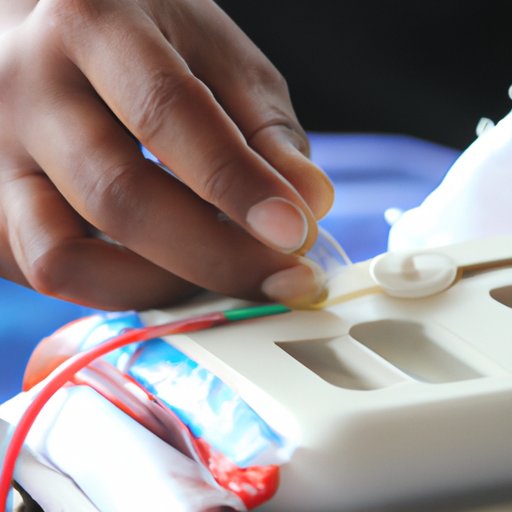Introduction
Knowing your blood type is important for various medical reasons. It not only helps with transfusions and donations but also provides insights into one’s health and wellness. In this article, we’ll explore the different blood types, testing methods, and why it’s essential to know your blood type.
Why is it important to know your blood type?
Knowing your blood type is essential for transfusions and donations. If someone receives the wrong blood type, it can have severe consequences. The immune system can attack the donated blood cells, leading to complications such as kidney failure or shock.
Moreover, if someone donates blood with an inaccurate blood type, the blood is unusable and can even pose a risk to the recipient.
Types of Blood
There are four primary types of blood: A,B, AB and O, determined by the presence of antigens in the blood.
- Blood Type A: Has A antigens and B antibodies
- Blood Type B: Has B antigens and A antibodies
- Blood Type AB: Has A and B antigens but neither A or B antibodies
- Blood Type O: Has no antigens and A and B antibodies
About 45% of the world’s population has blood type O, making it the most common blood type. Blood type AB is the rarest, with only about 3% of the population having it.
How to Test for Your Blood Type
There are several ways to find out one’s blood type. The most common methods include a blood test at a doctor’s office, an at-home blood-typing kit, or testing through a blood donation center.
For a blood test at a doctor’s office, a sample of blood is taken, and the blood is analyzed in a lab to determine the blood type. The results take a few days to come back.
An at-home blood typing kit involves using a lancet to draw blood and placing it on a testing card. The card indicates the blood type within a few minutes. However, these at-home kits may not always be accurate, and it’s essential to follow up with a doctor for confirmation.
Blood donation centers also provide a blood test to determine a person’s blood type. When you donate blood, it’s tested for multiple things, including blood type, to ensure it’s safe for eventual transfusion.
The Blood Testing Procedure
The blood testing procedure is simple and involves drawing a sample of blood using a needle. The process usually takes a few minutes, and the amount of blood taken is minimal. While the process is usually safe, side effects like dizziness and bleeding may occur, particularly for those who have sensitive veins.
If you experience any complications, it’s essential to contact your doctor immediately.
The Importance of Accuracy
It’s essential to obtain accurate results from blood tests. Misinformation can have severe consequences in medical situations that require blood transfusions or organ donations. Clinicians need correct data to make informed decisions and avoid adverse health outcomes.
Inherited Traits
Blood types are determined by genes that are inherited from both parents. Each parent passes an A, B, or O gene to their child, which determines the child’s blood type. If both parents pass the O gene, their child will have O blood type. If the parents pass an A and B gene, the child will have AB type blood. If parents pass an A, B or O gene, the child will have A or B type blood, depending upon the gene inherited.
Conclusion
Knowing your blood type is essential for not only donating and receiving blood but also gaining insights into personal health risks. If you haven’t yet found out your blood type, it’s easy to get tested through various methods such as a blood test at your doctor’s office or a blood donation center.
Additionally, if you have any concerns about your health and how it relates to your blood type, it’s always best to speak with a medical professional.
